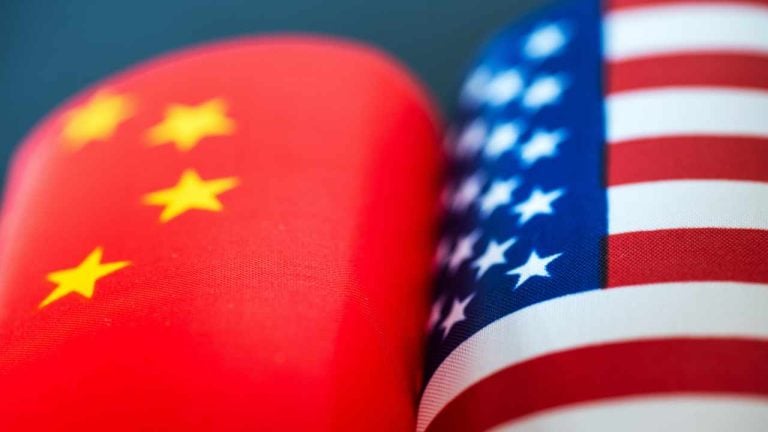JPMorgan Expects Dollar Dominance to Persist Even if China Overtakes US as Worlds Largest Economy

JPMorgan’s strategists have explained that even if China overtakes the U.S. as the world’s largest economy around 2030, the U.S. dollar may remain the world’s dominant currency for the rest of the 21st century. The global investment bank cited the historical experience of when the U.S. overtook Great Britain as the world’s largest economy.
JPMorgan Discusses Future of U.S. Dollar Amid China’s Projected Economic Dominance
Global investment bank JPMorgan’s strategists recently discussed the potential impact on the U.S. dollar in the event that the Chinese economy surpasses the U.S. as the world’s largest economy. According to the Centre for Economics and Business Research (CEBR), one of the U.K.’s leading economics consultancies, China is projected to surpass the United States as the world’s largest economy by 2030.
The JPMorgan strategists explained that even if China surpasses the U.S. economy, the USD is unlikely to lose its status as the world’s reserve currency immediately, citing historical experience suggesting that any transition would be gradual.
“While the U.S. surpassed Great Britain as the world’s largest economy in the latter part of the 19th century, the U.S. dollar is commonly perceived to have overtaken the British pound as the world’s foremost reserve currency only by the end of WWII,” the JPMorgan strategists wrote, adding:
Historical experience thus suggests that if China were to overtake the U.S. as the world’s largest economy around 2030, dollar dominance may persist even into the second half of the 21st century.
According to JPMorgan, China is the only country that could replace the dollar and the U.S. economy in the long term. However, the global investment bank’s strategists believe that this is unlikely to happen, given the US’ economic, technological, demographic, and geographic advantages. Furthermore, the Chinese yuan’s potential for growth is contingent on China easing capital controls.
Nonetheless, the JPMorgan strategists reiterated the possibility of gradual de-dollarization, stating that the process could be expedited by either diminishing confidence in the U.S. dollar or positive developments outside the U.S. that boost the credibility of an alternative currency. A potential alternative to the USD is the proposed common BRICS currency. The BRICS nations comprise Brazil, Russia, India, China, and South Africa.
Some people believe that the Chinese yuan will replace the USD as the world’s reserve currency. The chairman of Russia’s second-largest bank, for example, expects the yuan to replace the USD as the world’s main reserve and settlement currency “as early as the next decade.” A senior economist at financial services firm TD recently stated that the largest challengers to the dollar today are the euro and the Chinese renminbi. Economist Stephen Jen, a former Morgan Stanley managing director, expects a shift “from a unipolar reserve currency world to a multipolar world,” with the Chinese yuan, the euro, and the U.S. dollar forming a “tripolar” reserve currency configuration.
Do you think the Chinese yuan will replace the U.S. dollar as the world’s reserve currency? Let us know in the comments section below.
Register now to receive up to $255 welcome bonus. Let cryptocurrency change your life Register now to receive up to $255 welcome bonus. Let cryptocurrency change your life